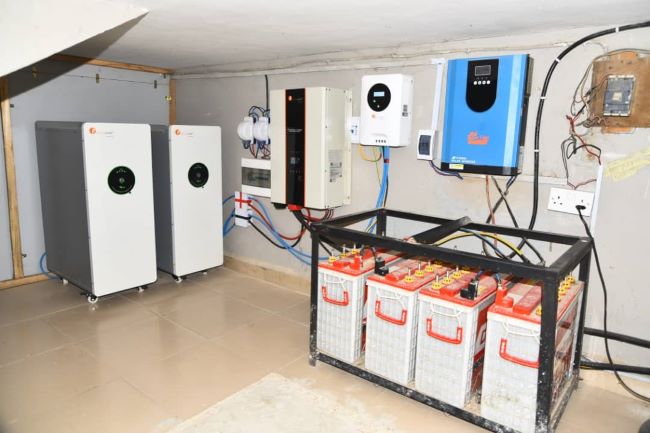A leading cleft charity organization, Smile Train has established seven solar-powered pediatric theatres across the six geopolitical zones.
This was disclosed by Smile Train’s Vice President and Regional Director for Africa, Nkeiruka Obi, during the 5th National Surgical, Obstetrics, Anesthesia, and Nursing Plan (NSOANP) stakeholders’ forum held in Abuja.
The forum, which reviewed the achievements of the five-year NSOANP 1 program, highlighted Smile Train’s transformative contributions to Nigeria’s healthcare landscape.
Speaking at the event, Obi revealed that over the past two decades, Smile Train has supported more than 50,000 Nigerian families by providing free, high-quality cleft care.
The organization has also prioritized capacity building for healthcare workers and infrastructural improvements, including the deployment of solar-powered pediatric theatres to tackle challenges posed by power outages during surgical procedures.
“These pediatric-dedicated theatres, located in Lagos, Kano, Port Harcourt, Enugu, Abuja, and Ilorin, are driven by solar energy, ensuring uninterrupted power supply during surgeries,” Obi stated.
“We are not only saving lives but also contributing to environmental sustainability by reducing carbon emissions through the use of clean energy.”
Smile Train’s patient-centred approach aligns with the six WHO health system building blocks, focusing on infrastructure, workforce development, service delivery, and governance.
According to Obi, the organization has made significant progress in building capacity for essential surgical care, anaesthesia, and perioperative nursing.
“We’ve trained biomedical engineers to repair surgical instruments safely, upskilled healthcare workers, and developed leadership within the health system,” Obi added.
The establishment of a cleft and surgery e-registry in Smile Train partner hospitals is another milestone aimed at improving healthcare outcomes.
A member of the NSOANP Implementation Committee, Justina Seyi-Olajide, explained that the registry captures data on cleft cases, other birth defects, and surgical conditions.
“This e-registry not only tracks cleft cases but also monitors patients from the point of presentation to the completion of care,” Seyi-Olajide said.
“The ultimate goal is to have a comprehensive registry that captures surgical conditions across the country.”
The solar-powered theatres and e-registry are part of Smile Train’s broader efforts to create a sustainable healthcare model in Nigeria. By addressing barriers such as power cuts and financial limitations, the organization has enabled equitable access to life-saving surgeries.
Obi emphasized the importance of these initiatives in supporting Nigeria’s healthcare infrastructure.
“Through these investments, we ensure that every individual with cleft lip or palate in Nigeria can access care without financial barriers. Our focus on clean energy is also a step toward preserving our planet while saving lives.”
The success of the NSOANP 1 program underscores the potential for continued collaboration between Smile Train, government agencies, and other stakeholders to expand access to quality surgical care for children across Nigeria.


